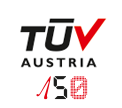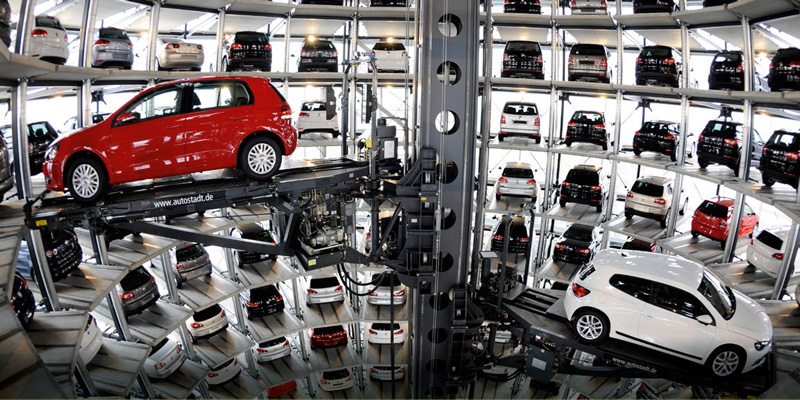Car pool management: Measures to save fuel under the Austrian Federal Energy Efficiency Act
- 06/14/2016
- Created by Christian Reitshammer
The law came into effect at the start of the year. TÜV AUSTRIA Automotive, primarily known as an accredited technical service for the testing, inspection, and approval of vehicles and their components, has already taken a look at the necessary measures for energy suppliers and vehicle fleets in advance. Consulting and services for fleet management in relation to the EEffG, in connection with training courses, management training and special events (see box), are now an additional focus of TÜV, explains Christian Rötzer, CEO of TÜV AUSTRIA Automotive.
The key word is "fuel economy." "If a company saves on fuel consumption, then costs are also reduced. This can also apply for private individuals, with the right training," says Rötzer. While around 70 percent of power in Austria is produced via sustainable means (wind, water power, etc.), this is not yet the case for traffic, which has a large share (29 percent in 2013 according to the International Energy Agency) of the total energy consumption. "The objective of the legislation is to implement measures for traffic also," explains Rötzer. This can either take place through measures of the vehicle industry or through energy suppliers, filling station operators, etc., to comply with the intentions of the EEffG, stating that energy suppliers support their customers (companies and households) in efficient energy use.
Car pool management by TÜV AUSTRIA: The perfect choice
According to Rötzer, there are two ways for the fleet management of a company: on the one hand it comes down to the choice of vehicles and means of transport (energy efficient vehicle models with lower fuel consumption and therefore lower CO2 emissions) as well as on traffic and route optimization. And on the other hand the use of the vehicle should be checked: how it's equipped and loaded, how it's maintained, the choice of tires is crucial and inspecting the tire pressure, which can significantly affect fuel consumption, etc. - "these are simple, but substantial contributions". The training of drivers and fleet operators is also a part of this.
It is currently also being checked by the monitoring body during the tendering and award status, whether the choice of particularly efficient vehicles can be promoted via the EEffG. "Electric and hybrid vehicles are very complex technologies and are very expensive. Buyers could be supported with a subsidy," the experts think.
Practical fleet management
Fleet management should be in the hands of professionals, Rötzer is convinced. "In principal, there are some companies - vehicle manufacturers, leasing companies -, who offer fleet management in the broader sense; but there are very few sources of advice from the viewpoint of an independent consultant or economic interests". Often, the facility manager, in-house technician etc. are responsible for the fleet in a company, but they are seldom real experts. "No training and education has been available up to now". TÜV AUSTRIA can offer expertise as an independent tester and has already applied and tested this in their own company. "In Austria, TÜV AUSTRIA has over 300 cars in operation and therefore analyzed the fleet," continued Rötzer. The findings: "We can be on the road more cheaply and, in addition, we will rework our fleet guidelines, so that we choose vehicles that are especially efficient."
The companies that have to heed the EEffG or also want to do so voluntarily and who approach TÜV AUSTRIA come from the most diverse of sectors, both in Austria and abroad, whether mineral oil companies, shipping agencies, bus operators, or companies with fleets. Together with an external partner, a firm of installers (with 60 vehicles) was checked, for example. Cars that are too light transporting too many goods generated high costs. Based on the consultation, the model and manufacturer were changed - with more favorable conditions. "The cars are now safer, the drivers are more satisfied, and it's all even cheaper," Rötzer adds. If it is determined that drivers in a company use more fuel on average (usually 10 to 15 percent), they can be trained accordingly.
From a single source
If a customer sends an order in the context of the EEffG, all measures converge in the TÜV AUSTRIA Environment Protection Business unit, where the experts from TÜV AUSTRIA then take on the part of the legislation that has to do with vehicles. Taking the example of the filling station network: TÜV AUSTRIA Environment Protection coordinates the various measures (e.g., thermal renovation of the building), TÜV AUSTRIA Automotive takes over the selection of vehicles and training, for example. TÜV AUSTRIA Cert in turn certifies the savings that were made, which the customer then presents to the monitoring body (which has yet to be created). "We help our customers prove that the measures were implemented. Thus penalty payments can be avoided," Rötzer clarified.
Training courses in the form of training for truck and bus drivers on energy efficient driving are also of high importance. A further advanced project was the stickers for EU tire levels, which has been in effect for two years regulating the condition and safety of tires. Here, TÜV AUSTRIA AUTOMOTIVE GMBH is striving to act as an independent monitoring body with the tire manufacturers. In the end, the marking on the tire should only state what it really contains. Regardless of whether private cars or tour bus operators: "If measures are implemented efficiently, there are many opportunities for saving," Rötzer is convinced.
Car pool management: Measures to save fuel under the Austrian Federal Energy Efficiency Act (C) AFP Picturedesk, Nigel Treblin

